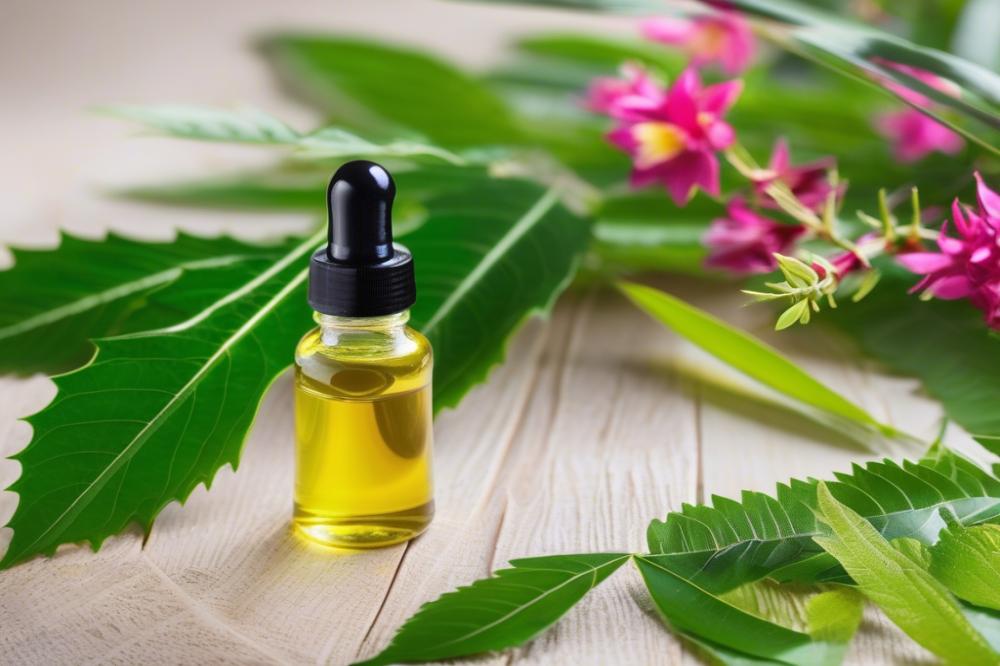The Role of Neem Oil in Organic Pest Control
Gardening serves as both an art and a science. Maintaining healthy plants is crucial for a thriving garden. Pests often pose significant challenges for gardeners. Common issues include aphids, mites, and caterpillars that can harm plants. Protecting plants from these threats becomes essential. Effective pest control methods are vital for successful horticulture.
Eco-friendly approaches have gained popularity in recent years. Many gardeners seek alternatives that do not harm the environment. Chemical pesticides can be harmful, not only to pests but also to beneficial insects and the surrounding ecosystem. Sustainable agriculture promotes plant health while keeping the earth safe. Choosing natural solutions often leads to healthier gardens and reduced pollution.
Among various options, one noteworthy method is the use of a natural pesticide derived from the neem tree. This oil serves as an effective insect repellent, targeting specific pests without affecting other creatures. It works by disrupting the life cycle of insects, making it difficult for them to feed and reproduce. Many gardeners appreciate the benefits of this organic farming technique. Adopting Neem Oil can help maintain balance in the garden, allowing beneficial insects to thrive.
Understanding Neem Oil


Source and Extraction from the Neem Tree
The neem tree, known scientifically as Azadirachta indica, is native to the Indian subcontinent. This evergreen tree thrives in tropical and subtropical regions. Harvesting neem oil begins with collecting seeds and leaves from the tree. After collection, the seeds are crushed to extract the oil. This process can be done through various methods, including cold pressing, which preserves beneficial properties. Careful handling of the neem materials is vital for quality.
Chemical Makeup and Active Compounds
Interestingly, the oil contains several active compounds. Among them, azadirachtin stands out for its insect-repelling properties. This compound disrupts the life cycle of pests, making it an effective natural pesticide. Other compounds work by deterring insects and preventing feeding. The unique composition of neem oil makes it versatile for use in gardening and horticulture. Plant health is significantly supported through these bioactive elements. They target harmful insects while being safe for beneficial insects.
Historical Uses in Traditional Medicine and Agriculture
Historically, communities have relied on the neem tree for various purposes. In traditional medicine, it was often used to treat skin conditions and infections. People in many cultures have recognized its myriad benefits for centuries. In agriculture, farmers utilized its properties to promote sustainable agriculture long before modern products emerged. Applications in organic farming highlighted its importance in pest control. The tree’s ability to support plant health while being eco-friendly has captivated many. Cultures across the globe have celebrated this plant for its remarkable qualities.
How Neem Oil Works as a Pest Control Agent


The process of using neem oil as a natural pesticide is interesting. When applied to plants, it disrupts the hormonal systems of many pests. This leads to issues like preventing them from feeding or reproducing. Insects are unable to grow or adapt normally, which ultimately reduces their population. Its ability to interfere with insect growth makes it very effective in maintaining plant health.
Mechanism of Action Against Pests
This organic substance contains compounds known as azadirachtin and other limonoids. These components have a direct effect on the nervous system of pests. They may create conditions that confuse insects, making it difficult for them to recognize food sources. Many insects stop eating almost immediately after contact. Such effects can lead to significant reductions in pest numbers without harming the overall ecosystem.
Types of Insects Repelled by Neem Oil
A variety of common garden pests find neem oil unpleasant. Aphids, spider mites, and whiteflies are some examples. Many gardeners deal with these pesky bugs regularly. Other insects, like beetles and caterpillars, also tend to avoid areas where this oil has been used. As it continues to be applied, its protective qualities help keep gardens flourishing.
Effects on Beneficial Insects and Pollinators
Using neem oil offers great benefits, especially for those interested in organic farming. It is essential to recognize the impact on beneficial insects. When applied correctly, this oil minimizes the risks to pollinators, like bees and butterflies. These important creatures often play roles in horticulture that aid plant growth. Avoiding harm to them ensures the garden remains vibrant and productive.
It is wise for gardeners to use neem oil thoughtfully. Understanding the balance between pest control and promoting biodiversity is key in sustainable agriculture. Being mindful of the timing and concentration of application can help protect the entire ecosystem.
Application of Neem Oil in Gardens


Using oil from the neem tree offers a variety of benefits for gardening. Applying this natural pesticide requires some best practices to maximize effectiveness. Start by choosing the right time of day for application. Mornings or late afternoons are ideal since it’s cooler, and beneficial insects are usually less active during these times.
Best Practices for Application
Always test on a small area before widespread use. This will help verify that your plants do not react negatively. Use a garden sprayer or a spray bottle for even coverage. Make sure to coat both the upper and lower surfaces of leaves. Insects tend to hide on the undersides, so thorough spraying is essential.
Recommended Concentrations and Dilution Methods
When diluting, a general guideline is to mix 1 to 2 tablespoons of neem oil with 1 gallon of water. Adding a few drops of mild soap helps the mixture to adhere better to the plants. Avoid over-concentration as it could harm sensitive species. Always read the product instructions for specific recommendations tailored to the product you are using.
Timing and Frequency of Use for Optimal Plant Health
Timing plays a crucial role in pest management. Apply the treatment every 7 to 14 days, especially during high pest activity. Monitor plants regularly to catch issues early. An initial pest outbreak might call for more frequent applications. Sustainable agriculture benefits from this proactive approach.
Incorporating neem oil into your horticulture practices promotes plant health while being eco-friendly. With consistent care and timely treatments, you can create a thriving garden that wards off pests while supporting beneficial insects. Organic farming methods like this represent a natural way to maintain balance in your plot of land.
Benefits of Using Neem Oil


Safety is one of the biggest advantages of using this natural pesticide. It poses minimal risk to humans and pets. Most gardening enthusiasts prefer eco-friendly options when managing pests. This oil comes from the neem tree, making it a great choice for organic farming.
In sustainable agriculture, the importance of protecting beneficial insects cannot be overstated. Many traditional pesticides harm these helpful creatures. In contrast, this oil acts as a gentle insect repellent, targeting harmful pests while leaving the good ones unharmed. This creates a balanced ecosystem in horticulture.
Plant health is essential for any gardener. Using neem oil can encourage strong growth in various plants. It helps reduce stress from pest infestations, allowing plants to thrive. Healthy plants are better equipped to fight off diseases and produce more fruit or flowers.
Furthermore, this oil contributes significantly to organic farming practices. Its biodegradable nature makes it suitable for use in environmentally conscious gardens. Farmers can utilize it without fearing toxic runoff or soil contamination. This helps maintain the integrity of farmland for future generations.
Challenges and Considerations
While neem oil serves as a natural pesticide, its use does come with certain limitations. Effectiveness may vary based on the type of pest and the concentration of the product used. Many gardeners rely on this oil for pest control, but it is not a catch-all solution for every bug issue. Some insects may develop resistance over time, reducing the oil’s effectiveness. This resistance occurs when pests reproduce, passing on their resistant traits to future generations.
Resistance can lead to ongoing challenges in controlling pest populations. As specific pests learn to avoid or tolerate treatments, traditional methods may become ineffective. This reality urges gardeners to rely on a broader strategy for pest management. Integrated pest management is essential to maintain plant health while minimizing the impact on the environment. By combining various control methods, including organic farming practices, gardeners can address pest problems more effectively.
Using neem oil in isolation is not enough for sustainable agriculture. Effective pest management also considers the presence of beneficial insects. Pollinators and predatory insects are crucial players in a healthy ecosystem. Therefore, any pest control method should aim to protect these helpful species while targeting the pests.
In horticulture, understanding these nuances becomes key. Educating oneself on diverse techniques becomes necessary when using organic options. Maintaining balance is vital to promote overall plant health. A gardener should also be aware of how various treatments might interact with one another. This knowledge helps find the best solutions in their unique gardening environment.
The Takeaway on Neem Oil and Organic Pest Control
In summary, neem oil serves as a vital resource in the realm of organic pest control. This natural pesticide offers a variety of benefits for those looking to maintain a healthy garden without relying on harsh chemicals. When applied correctly, it can effectively manage pests while promoting a balanced ecosystem.
Many gardeners have discovered neem oil’s potential to combat harmful insects, safeguarding their plants while supporting sustainable practices. The ability of this oil to disrupt pests’ life cycles means it not only addresses existing infestations but also prevents future ones. This dual action makes it a preferred choice for those dedicated to environmentally friendly methods.
Adopting these eco-friendly approaches can greatly enhance the health of gardens. By thinking carefully about pest management, gardeners contribute to a more sustainable world. As more people become aware of the advantages of using plant-based solutions, it becomes clear that their choices reflect a commitment to nature.
Consider incorporating this valuable tool into your gardening routine. Be proactive in pest management; it can yield healthy plants and promote biodiversity. Making informed decisions today will lead to a thriving environment for generations to come.



